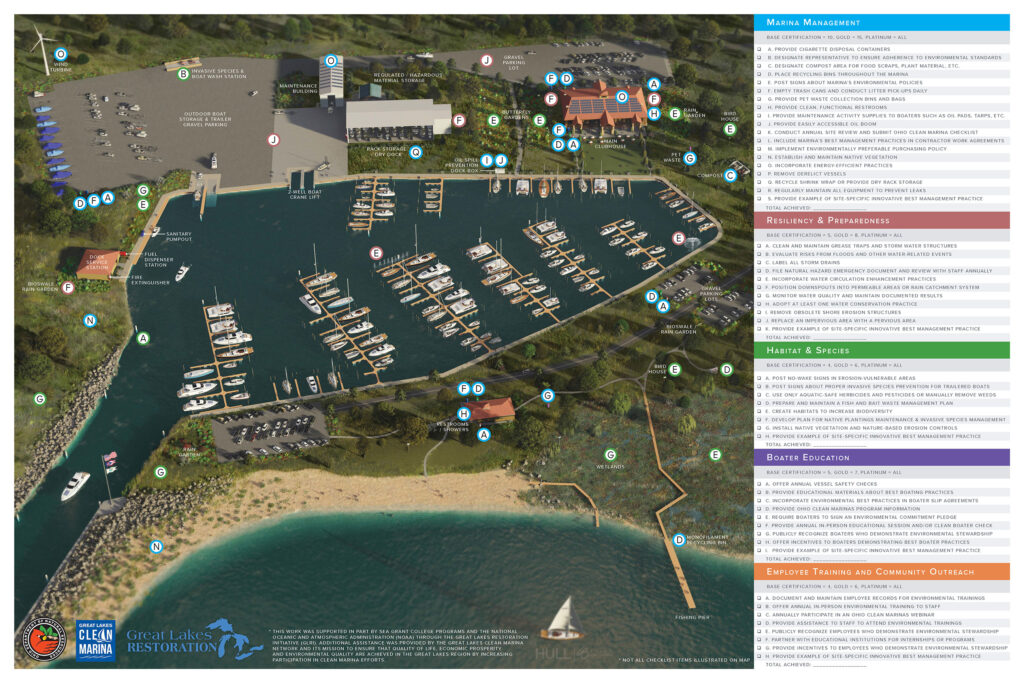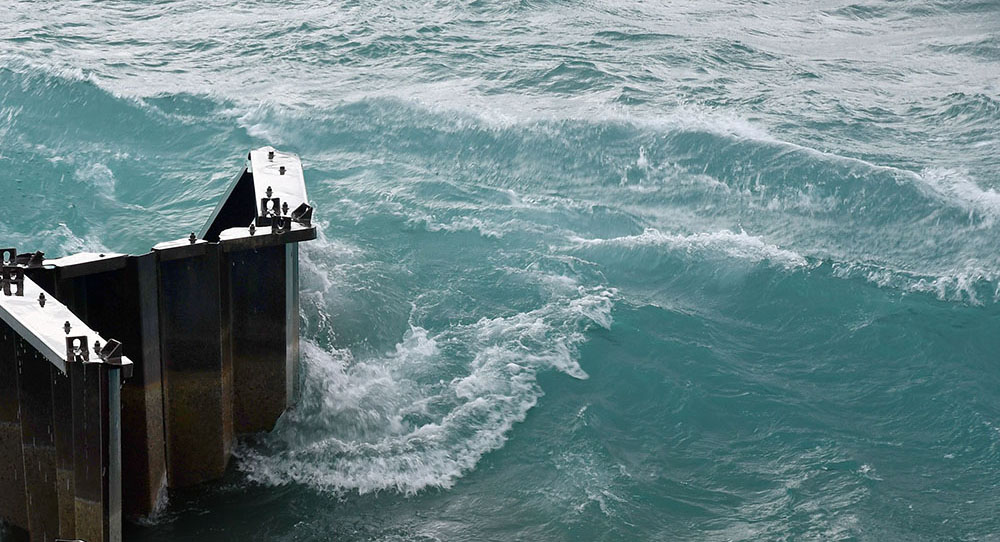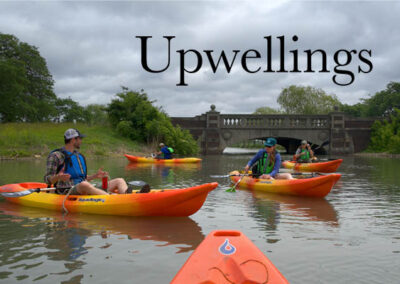Michigan is home to more than 80 public marinas and harbors, managed by state, county, or local governments. Marinas, waterfronts, and harbors provide value to residents and visitors through improved quality of life. They are part of a coastal and boating culture that contributes nearly $2.5 billion in economic activity to the state each year. Michigan Sea Grant (MISG) has several programs and research efforts to support communities and managers of these valuable areas in their efforts to increase long-term viability and sustainability.
Developing a Sustainability Strategy
The long-running Sustainable Small Harbors program is a collaboration of MISG, the Office of the Great Lakes in the Michigan Department of the Environment, Great Lakes, and Energy, and other partners. The program’s recently updated digital Tools and Tactics Guidebook walks communities through the process of developing long-term sustainability plans for their public waterfronts. The program website features community case studies that can help leaders and planners develop a shared vision for socially, environmentally, and economically sustainable waterfronts and harbors, including options for dealing with extreme storms and fluctuating lake levels. Thanks to the Sustainable Small Harbors program, small coastal communities like Au Gres have made positive changes that build community identity and fuel economic growth.
Supporting Green Infrastructure
When it rains or snows, precipitation that has not been absorbed by the ground washes over the landscape, often collecting pollution on the way. Using green infrastructure or rain gardens to manage stormwater can minimize water pollution entering the lake while eliminating nuisance flooding and improving aesthetics. Implementing these projects, however, can prove challenging for marinas that may not have the technical expertise or funding. The Great Lakes Clean Marina Network (GLCMN) – which includes members of the Great Lakes Sea Grant Network (GLSGN) – worked with marinas in Wisconsin, Michigan, and Ohio to help support their efforts to write grants, obtain funding, implement projects, and communicate to the public.
The GLCMN connected marinas with technical guidance and environmental education and leveraged expertise in financial and project coordination, funding, and communications, including understanding of the regulations. The marinas that participated in this project have become stewards for more widespread adoption and innovation of these practices. These projects also show how Sea Grant networks can help marinas and their communities by connecting them to groups, people, and resources that can help ensure that they have a seat at the local table to advocate for their marina projects. The project provides an online resource where marinas can learn more about green infrastructure, including these four projects and a virtual tour of green infrastructure at a marina.
Shoreline Armoring along Coasts
In collaboration with the University of Michigan Environmental Law & Sustainability Clinic, Michigan Sea Grant recently released a guide to assist coastal municipalities in the development of policies that protect assets from the effects of shoreline erosion, lake level fluctuations, and flooding, particularly focusing on the impacts of private shoreline armoring. The guide, “Best Practices in Great Lakes Shoreline Management: A Guide for Michigan Municipalities,” describes policy approaches to shoreline management and summarizes example ordinances currently in place throughout the United States.
The guide describes different approaches to addressing the issue of private shoreline armoring along Michigan’s coastline. Although communities will typically still need legal assistance to write a new shoreline ordinance, the guide provides a broad understanding of policy options, including potential tradeoffs and considerations, along with examples.
Coastal Resilience Hub
Amid extreme and frequent weather events and risks to coastal economies, families, and communities, the need to address related challenges is critical. Along Michigan’s 3,000 miles of shoreline, communities and coastal managers face increasingly complex coastal dynamics. To assist these efforts, MISG compiled a suite of resources to enhance engagement, technical assistance, education, and research investments to address climate and weather impacts in local communities.
This online resource hub contains case studies, video and written overviews of planning tools, technical guidance on climate resilience policies, and links to funding sources. These materials will be instrumental in achieving more resilient communities and economies across the nation. The hub also connects users to MISG Extension educators in coastal communities who can assist with resilience needs and provide guidance.
Boating Pumpouts and Clean Marinas
MISG also helps administer the Michigan Boating Pumpout Grant Program, which helps public and private marinas reduce pollution from boats by providing funds for new or upgraded pumpout stations and waste reception facilities. These projects allow boaters to safely dispose of recreational boater sewage at marinas. Since beginning this collaboration with the Michigan Department of Natural Resources (MDNR), MISG has helped provide more than $500,000 in grant funding to support 26 pumpout projects around Michigan lakes.
MISG also supports the Michigan Clean Marina Program, a voluntary certification program that encourages marinas to take sustainable actions that improve water quality in and around their facilities. MISG also participates in the national Clean Marina Program Managers network to better serve marinas in Michigan through lessons learned and greater collaboration throughout the nation.
These are just a few of the ways that MISG is helping to support marinas, waterfronts, and harbors throughout the state of Michigan and in the Great Lakes region. More information can be found on our website.







